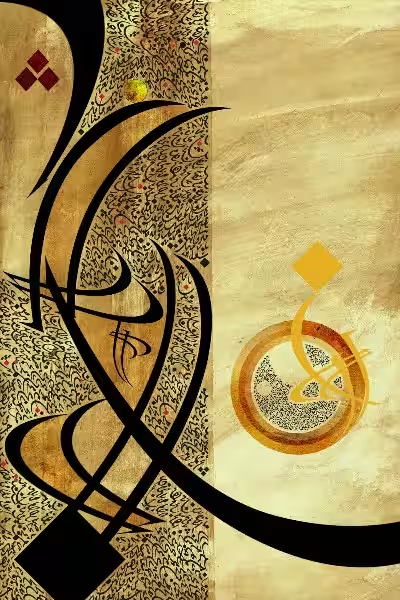
A Journey Through the Meaning of “Rabb”
The Arabic word for “lord” is rabb (ﺭَﺏّ), a word that holds immense weight and deep meaning within the Arabic language and culture. It’s not just a simple translation; it’s a concept that encapsulates power, authority, and a profound connection to the divine. Pronounced “rabb,” this masculine singular noun transcends simple definitions and carries within it layers of meaning that have shaped the Arabic world for centuries.
The word “rabb” isn’t limited to a single interpretation. It’s a versatile term that finds its place in various contexts, reflecting the richness and complexity of the Arabic language. Just as the English word “lord” can refer to a ruler, a master, or even God, “rabb” takes on different shades of meaning depending on its usage.
Beyond Translation: Exploring the Nuances of “Rabb”
One of the most common uses of “rabb” is in reference to God. The phrase “Rabbul Alameen” (ﺭَبُّ ٱلْعَالَمِينَ), meaning “Lord of the Worlds” is a significant title for God in Islamic theology. This usage highlights the absolute power and dominion that God holds over the universe and all its inhabitants. It emphasizes God’s role as the ultimate creator, sustainer, and ruler of all that exists.
However, “rabb” isn’t confined to divine connotations. It can also be used to describe a master or owner, as in “rabbul bait” (ﺭَبُّ ٱلْبَيْتِ), meaning “master of the house.” In this context, “rabb” signifies authority and responsibility over a particular domain or property. This usage reflects the hierarchical structures and social dynamics present in many cultures, where individuals hold positions of power and responsibility over others or their belongings.
“Rabb” in the Quran: A Powerful Presence
The Quran, the holy book of Islam, uses the word “rabb” extensively, further emphasizing its importance within the Arabic language and Islamic theology. Throughout the Quranic verses, “rabb” is used to highlight God’s attributes, such as his power, authority, mercy, and compassion. It is used to describe God’s relationship with humanity, emphasizing his role as provider, protector, and guide.
For example, the Quranic verse “He is the Lord of the heavens and the earth” (Surah 2:255) reiterates God’s ultimate authority over all creation. This verse highlights the concept of God as the ultimate source of power and dominion, a concept that is central to Islamic belief.
“Rabb” in Arabic Culture: A Foundation of Understanding
“Rabb” is more than just a word; it’s a concept that has shaped Arabic culture and understanding of the world. It reflects the deep-rooted belief in a divine power that governs all aspects of life, from the smallest detail to the grandest cosmic events. This belief permeates various aspects of Arabic culture, from literature and art to social customs and traditions.
Understanding the different nuances of “rabb” is essential for anyone seeking to delve deeper into Arabic language and culture. It provides a key to unlocking the rich tapestry of meaning that lies within the language and its various expressions.
The Power of Arabic: Unveiling the Depth of “Rabb”
The Arabic language is renowned for its richness, precision, and depth of expression. “Rabb” is a perfect example of how Arabic words can convey complex ideas and concepts, encompassing multiple layers of meaning. It’s a testament to the power of language to shape thought, culture, and understanding.
By exploring the word “rabb,” we gain a deeper appreciation for the beauty and complexity of the Arabic language. It’s a journey into the heart of Arabic culture, uncovering the values, beliefs, and traditions that have shaped the Arabic world for centuries.
Frequently Asked Questions about “Lord” in Arabic
What is the Arabic word for “lord”?
The Arabic word for “lord” is rabb (ﺭَﺏّ).
How is “rabb” pronounced?
It is pronounced as “rabb”.
What is the grammatical form of “rabb”?
“rabb” is a masculine singular noun.
What is the plural form of “rabb”?
The plural form of “rabb” is ‘arbaab (ﺃَﺭﺑَﺎﺏ).
How is “rabb” used in different contexts?
“rabb” can be used to refer to God, as in “Rabbul Alameen” (Lord of the Worlds). It can also be used to refer to a master or owner, as in “rabbul bait” (master of the house).
What is the significance of “rabb” in the Quran?
The word “rabb” is used in various contexts in the Quran, often to describe God’s power and authority, as well as his mercy and compassion.
Why is “rabb” important for understanding Arabic literature and culture?
The word “rabb” is essential for understanding Arabic literature and culture. It is a key term in Islamic theology and reflects the deep understanding of divinity in Arabic culture.
- Check the URL: Make sure the URL is correct and spelled properly.
- Try accessing the URL yourself: You could try visiting the URL directly in your browser. If you are able to access the content, you might be able to copy and paste it for me to summarize.
- Search for the information elsewhere: The information about the English-Arabic translation of “lord” might be available on other online dictionaries or resources.
- Contact the website: If you believe the website is blocking access in error, you could try contacting the website administrators to see if they can help.








